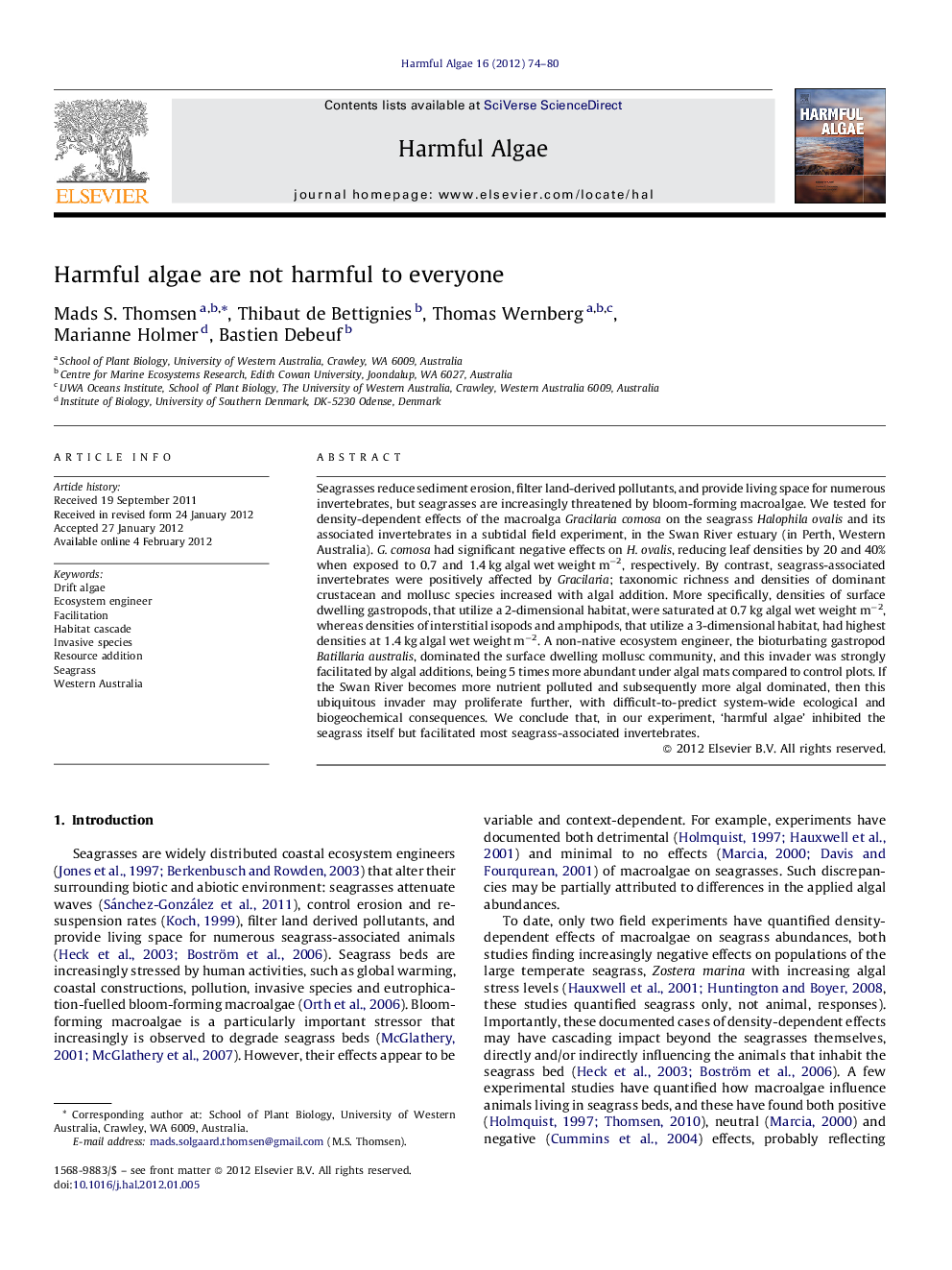| کد مقاله | کد نشریه | سال انتشار | مقاله انگلیسی | نسخه تمام متن |
|---|---|---|---|---|
| 4545618 | 1626954 | 2012 | 7 صفحه PDF | دانلود رایگان |

Seagrasses reduce sediment erosion, filter land-derived pollutants, and provide living space for numerous invertebrates, but seagrasses are increasingly threatened by bloom-forming macroalgae. We tested for density-dependent effects of the macroalga Gracilaria comosa on the seagrass Halophila ovalis and its associated invertebrates in a subtidal field experiment, in the Swan River estuary (in Perth, Western Australia). G. comosa had significant negative effects on H. ovalis, reducing leaf densities by 20 and 40% when exposed to 0.7 and 1.4 kg algal wet weight m−2, respectively. By contrast, seagrass-associated invertebrates were positively affected by Gracilaria; taxonomic richness and densities of dominant crustacean and mollusc species increased with algal addition. More specifically, densities of surface dwelling gastropods, that utilize a 2-dimensional habitat, were saturated at 0.7 kg algal wet weight m−2, whereas densities of interstitial isopods and amphipods, that utilize a 3-dimensional habitat, had highest densities at 1.4 kg algal wet weight m−2. A non-native ecosystem engineer, the bioturbating gastropod Batillaria australis, dominated the surface dwelling mollusc community, and this invader was strongly facilitated by algal additions, being 5 times more abundant under algal mats compared to control plots. If the Swan River becomes more nutrient polluted and subsequently more algal dominated, then this ubiquitous invader may proliferate further, with difficult-to-predict system-wide ecological and biogeochemical consequences. We conclude that, in our experiment, ‘harmful algae’ inhibited the seagrass itself but facilitated most seagrass-associated invertebrates.
► Macroalgae threaten seagrass beds and the invertebrates living there.
► We experimentally demonstrated that macroalgae can have negative effect on seagrasses but positive effects on invertebrates.
► An invasive ecosystem engineer, the gastropod Batillaria australis, was strongly facilitated by the macroalgae.
► If nutrient pollution increases, algae will benefit, resulting in indirect and difficult-to-predict impacts associated with this invasive ecosystem engineer.
Journal: Harmful Algae - Volume 16, April 2012, Pages 74–80